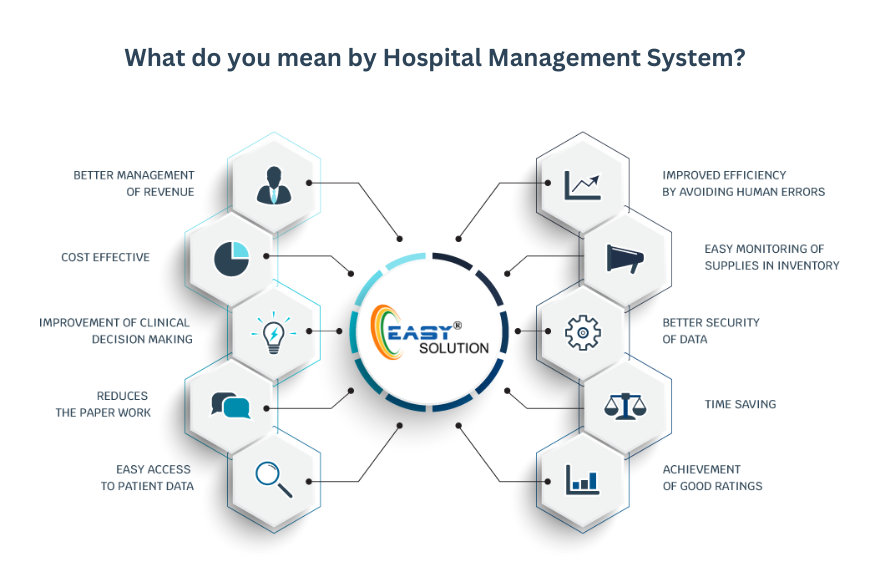What do you mean by hospital management system?
A Hospital Management System (HMS) is a software program that is used in healthcare facilities to automate and simplify a variety of administrative, operational, and clinical tasks. Patient registration, appointment scheduling, billing and invoicing, electronic health records (EHR), pharmacy management, laboratory management, and other modules are all included in its scope. An HMS's main objectives are to increase the overall effectiveness of hospital operations, decrease errors, cut down on paperwork, and raise the standard of patient care. Better decision-making, access to and updating of patient data, and an efficient and well-organized healthcare delivery system are all made possible by an HMS, which offers a centralized platform for data administration and communication.EASY HMS is therefore adopted by all the advanced single and multi-centre clinics for ease of handling clinic functions.

Here are key components and uses of a Hospital Management System:
1. Patient InformationManagement:
HMS centralizes patient data, including personal information, medical history, and treatment plans. This enables easy access to patient records, improving the continuity of care. With web-based CMS, the data is accessible anytime and anywhere on a real-time basis. Therefore, it resolves the issue of delayed decision making or loss of information.
2. Appointment Scheduling:
The system assists in scheduling patient appointments, managing availability of doctors and resources, and sending reminders. This helps reduce waiting times and ensures a smoother patient flow.
3. Billing and Invoicing:
HMS automates billing processes, generates invoices, and tracks financial transactions. This feature is essential for accurate billing, insurance claims, and financial management within the healthcare institution.
4. Inventory Management:
It helps manage and monitor the inventory of medical supplies, pharmaceuticals, and equipment. This ensures that necessary resources are available, reducing the risk of shortages or overstock.
5. Doctor and Staff Management:
HMS facilitates the management of doctor schedules, assignments, and staff responsibilities. This ensures optimal utilization of resources and efficient staffing.
6. Laboratory and Diagnostic Management:
It supports the integration and management of laboratory and diagnostic services, including test orders, results, and the storage of diagnostic images and reports.
7. Electronic Health Records (EHR):
HMS maintains electronic health records, providing a digital repository for patient information. This enhances accessibility, accuracy, and security of medical records.
8. Reporting and Analytics:
The system generates reports and analytics on various aspects of hospital operations, helping administrators make informed decisions, track performance, and identify areas for improvement.
9. Security and Compliance:
HMS ensures the security of patient data and compliance with healthcare regulations, such as HIPAA (Health Insurance Portability and Accountability Act) in the United States.
10. Communication:
The system facilitates communication and collaboration among different departments and healthcare professionals, promoting a more coordinated approach to patient care.
In summary, a Hospital Management System is a software solution that serves as a centralized platform to manage the diverse aspects of healthcare institutions. Its uses range from administrative tasks to patient care, contributing to improved operational efficiency, better resource management, and enhanced healthcare services.